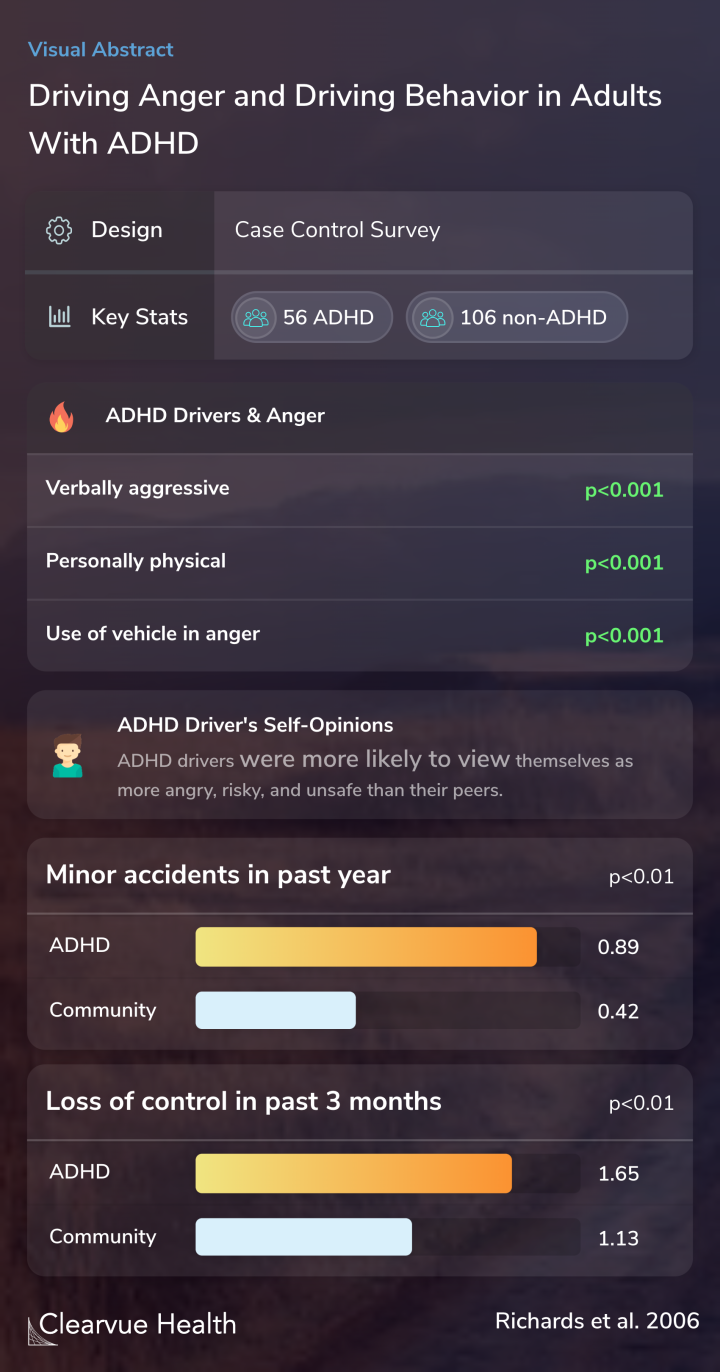Driving Anger and Driving Behavior in Adults With ADHD
Tracy L Richards, Jerry L Deffenbacher, Lee A Rosén, Russell A Barkley, Trisha Rodricks

Objective
ADHD affects more than just our performance at school and work. It can also impact our lives at home and on the road.
ADHD has been closely linked to mood swings and intense emotions. Those with ADHD are also at a higher risk o developing bipolar disorder:
Studies have shown that those with ADHD tend to engage in riskier driving. This study wanted to see whether anger was one of the factors behind the link between ADHD and driving risk
This study assesses whether anger in the context of driving is associated with the negative driving outcomes experienced by individuals with ADHD.
Method
Researchers asked participants with ADHD to complete some assessments on their driving records and behavior while driving.
They also asked groups of individuals who did not have ADHD to complete the same assessments as a baseline comparison.
ADHD adults (n = 56) complete measures of driving anger, driving anger expression, angry thoughts behind the wheel, and aggressive, risky, and crash-related behavior. Results are compared to two non-ADHD control groups: one from the same community as the ADHD sample (n = 106) but that di...
Results
Consistent with previous studies, researchers found that those with ADHD were likelier to have minor car accidents than those without ADHD.
They were also more likely to have incidents of loss of control.
The study also found that anger and emotional control might be a reason behind higher accident rates among drivers with ADHD.
Drivers with ADHD were more likely to admit to having episodes of verbal aggression, physical aggression, and using their vehicle in anger.
The most common angry thoughts were judgmental thoughts, retaliatory thoughts, and negative labels for others.
Drivers with ADHD were quite self-aware. Those with ADHD were likelier to view themselves as angry or unsafe drivers.
ADHD participants report more driving anger and aggressive expression through the use of their vehicle and less adaptive and constructive anger expression than their non-ADHD peers. Adult ADHD drivers rate themselves as more angry, risky, and unsafe drivers and report experiencing more l...